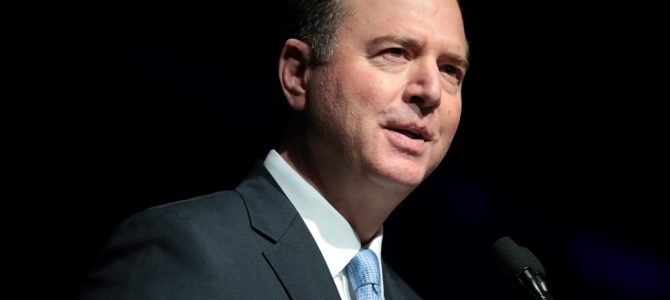
An anti-Trump whistleblower at the center of ongoing Democratic efforts to impeach President Donald Trump coordinated with Rep. Adam Schiff, D-Calif., and his Democratic staff prior to filing his whistleblower complaint, The New York Times reported on Wednesday afternoon. The bombshell report that the whistleblower and his Central Intelligence Agency (CIA) colleagues actively worked exclusively with congressional Democrats before filing the complaint raises serious questions about whether the complainant followed federal laws providing whistleblower protections for employees within the U.S. intelligence community.
“Before going to Congress, the C.I.A. officer had a colleague convey his accusations to the agency’s top lawyer,” The New York Times reported. “Concerned about how that avenue for airing his allegations was unfolding, the officer then approached a House Intelligence Committee aide, alerting him to the accusation against Mr. Trump.”
The New York Times noted that the anti-Trump complainant only notified the committee’s Democrats of his allegations.
“The whistle-blower’s decision to offer what amounted to an early warning to the intelligence committee’s Democrats is also sure to thrust Mr. Schiff even more forcefully into the center of the controversy,” The New York Times wrote.
Under federal law, whistleblowers within the intelligence community are required to report any allegations of wrongdoing to the Intelligence Community Inspector General (ICIG) in order to receive statutory whistleblower protections for their disclosures. The law does not provide any protections to employees or contractors who bypass the process required by law and go directly to Congress, nor does it provide any avenue to disclose classified information to Congress without first going through the ICIG. If the complainant or a colleague leaked classified information to Schiff or his committee, those individuals could be subject to criminal liability for illegal and unauthorized disclosure of classified information.
“The employee may contact the intelligence committees directly [after filing a complaint with the inspector general] if the employee…before making such a contact, furnishes to the Director, through the Inspector General, a statement of the employee’s complaint or information and notice of the employee’s intent to contact the intelligence committees directly…and obtains and follows from the Director, through the Inspector General, direction on how to contact the intelligence committees in accordance with appropriate security practices,” the federal whistleblower law, known as the Intelligence Community Whistleblower Protection Act, or ICWPA, states.
The full anti-Trump complaint, which was declassified by the president and released on September 25, included no first-hand evidence of wrongdoing by the president. Instead, it offered a litany of second-hand allegations, gossip, and hearsay, much of which was shown to be false when compared to the actual transcript of the July 25 phone call between Trump and Ukrainian President Volodymr Zelensky.
As The Federalist first reported last week, the ICIG changed its internal rules and guidance regarding whistleblower complaints to eliminate a requirement that the complaints contain first-hand information. The ICIG confirmed that reporting on Monday when it admitted it had altered its forms and procedures after the anti-Trump complaint was filed with the ICIG.
Top lawmakers in both the Senate and House sent letters to the ICIG earlier this week demanding to know precisely when the first-hand information required was discarded. Under the whistleblower law, the ICIG has near-total authority to determine how whistleblower evidence is weighed and ultimately whether complaints are considered credible.
The ICIG admitted in a September 13 letter to Congress that he never reviewed the transcript of the July 25 call before determining that the anti-Trump complaint “appear[ed] credible.”
“As part of its preliminary review, the ICIG did not request access to records of the President’s July 25, 2019, call with the Ukrainian President,” ICIG Michael Atkinson wrote.
Both the Director of National Intelligence and the Department of Justice Office of Legal Counsel determined that the complaint was statutorily deficient and did not qualify under the law as an “urgent concern” that needed to be provided to the relevant congressional oversight committees.
The communication between the whistleblower and House Democrats prior to the complaint’s filing also raises questions about whether Schiff and his committee staff coordinated with the ICIG regarding the watchdog’s whistleblower forms and guidance stating that first-hand information is required in order for the agency to properly investigate “urgent concern” complaints.
The new revelations that Schiff and his staff coordinated with the anti-Trump complainant and his colleagues prior to a formal whistleblower complaint also suggest Schiff was less than truthful about his interactions with the whistleblower. On August 28, nearly two weeks before the ICIG formally informed Congress of a pending “urgent concern” whistleblower complaint from an intel operative, Schiff tweeted allegations from the complaint without disclosing their source.
“Schiff was in on it and he lied about it,” a congressional G.O.P. staffer told The Federalist. “This impeachment initiative has as much genuineness as a three dollar bill.”









